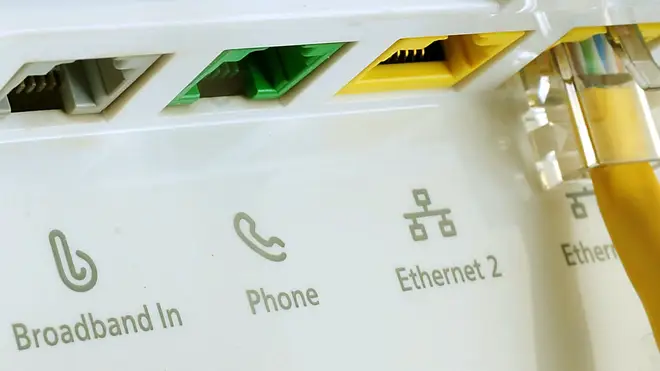
Clive Bull 1am - 4am
12 May 2023, 00:04

The report, covering England only, said fixed broadband access is linked to economic activity and educational attainment.
Deprived areas of England have less access to the fastest broadband despite relying more heavily on internet usage, a new report has found.
The Local Government Association is calling for a digital exclusion minister to be appointed, in order to come up with a new strategy to close a gap which it said has left some areas in the “broadband slow lane”.
Its report said that access to fixed broadband, which supports fast speeds, is 15 percentage points lower in the most deprived areas compared with the least deprived.
But it added that average monthly data usage is 46% higher in the most deprived areas than the least deprived, and indicated the more deprived areas tend to use their broadband lines more heavily.
The report, covering England only, said fixed broadband access is linked to economic activity and educational attainment.
It stated: “Each 10 percentage point increase in fixed broadband penetration is associated with a four percentage point increase in the economic activity rate and about three points in the average attainment eight score at Key Stage 4.”
The LGA said towns and cities continue to benefit from faster download and upload speeds compared with rural areas and that places with the best fixed broadband coverage tend also to have the best mobile coverage – widening the divide.
More than one in 10 (11%) of households across the UK still do not have access to the internet, and 15% of people aged 65 and over have never been online, the LGA added.
The organisation, which represents councils in England and Wales, is calling for a refreshed strategy to ensure good access across the country “to transform communities and unleash people’s full potential”.
Mark Hawthorne, digital connectivity spokesman for the LGA, said: “The Government has pledged to give every home and business access to the fastest possible broadband, but this report demonstrates the digital divide is still holding some back in the broadband slow lane.
“We need a complete refresh of the current digital inclusion strategy, which is nearly a decade old, with a minister in charge to oversee it and make sure no one is left behind.
“Reliable access to high-quality fixed and mobile broadband means that you can boost your skills, grow a business and enhance your job prospects, while also playing a vital role in reducing social isolation by keeping people in touch with family and friends.
“Councils want to make sure that, no matter which part of the country you live in or your circumstances, everyone can experience the transformational benefits that fast internet access can bring.”